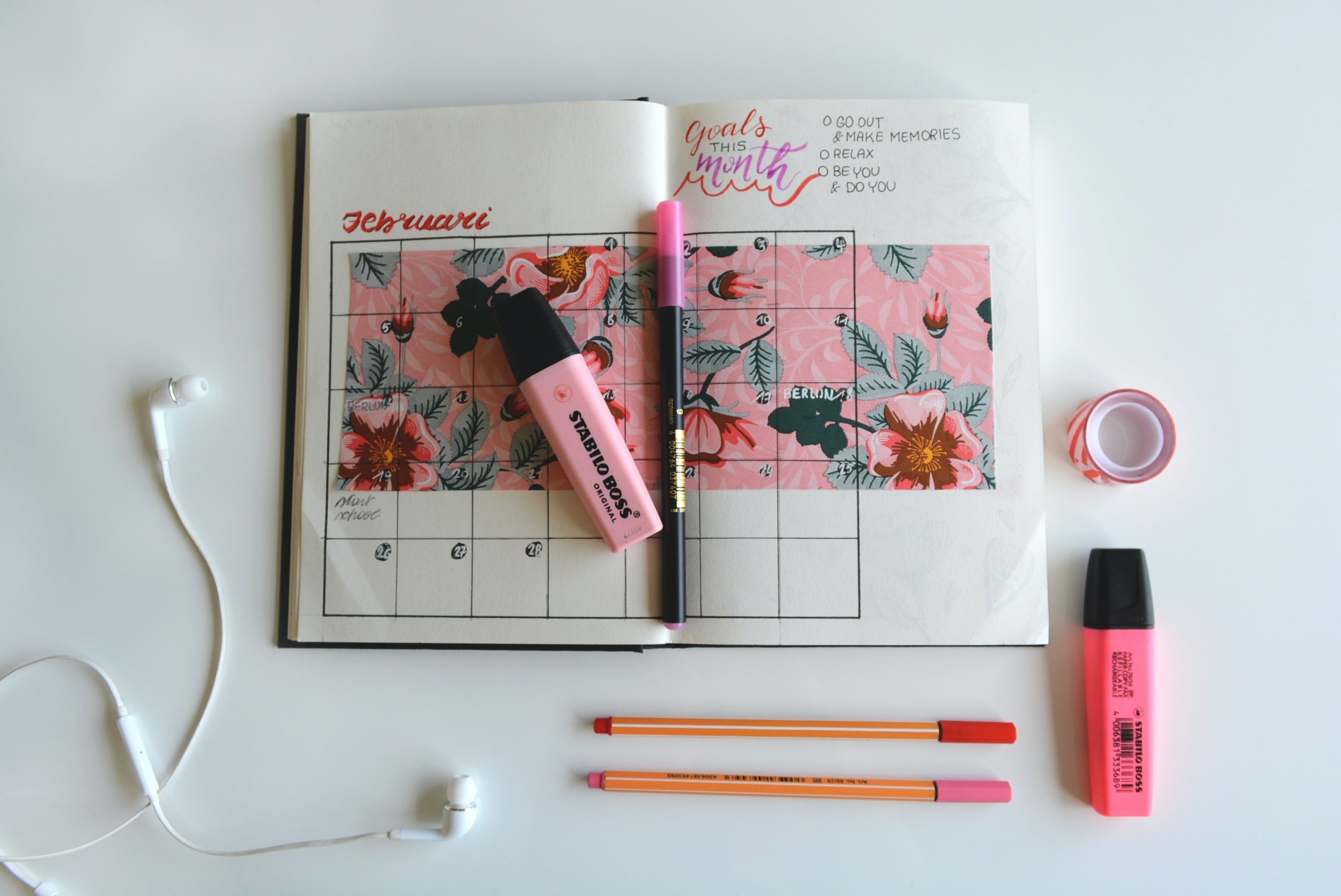This blog is by Rachel Crookes, Head of SAGE Campus, sharing some tips on how to master skills to write a winning dissertation.
So it’s 2022 and this is the year you have to deliver a dissertation. It’s your first one, or it’s been a while – where to begin?
Here are five skills you need to create a killer dissertation on schedule.
Planning Skills
Dissertations have many phases and steps. Taking time to plan your approach to each phase of the project is crucial for having a positive dissertation experience and avoiding burnout. Don’t try and plan it all out in one go, but instead sit down and ask yourself a series of questions – and the first one I recommend is ‘what type of planning do I enjoy?’
Photo by Estée Janssens on Unsplash
Systematic planning: using lots of deadlines and timelines to give me direction
Creative planning: using colour codes, mind maps or visuals to inspire me as I plan questions
Spontaneous planning: perhaps structured planning is a struggle, but you enjoy chalkboard planning or planning ‘out loud’ with other people
Analytical planning: using lists, smart goals, broken down steps or reflection activities to work out what to do when and how
Knowing what kind of planning motivates you will help you put together an effective plan that is tailored to your needs and goals.
2. Critical reading skills
Reading critically is a skill you’ve probably developed already through your studies. A dissertation is your opportunity to put those skills to good use and let them shine through in your final piece of work. There are many approaches and techniques for critical reading, but it all comes down to knowing why you are reading something.
Is it to better understand the subject generally? Is it to identify counter-arguments to ones you’ve already read? Whatever the purpose of your reading, try and look for the following information within each piece you read:
What are the main points in this argument?
What claims are being made?
What evidence is used?
What is the conclusion?
Critical reading doesn’t mean using an arduous technique but it does take conscious effort.
3. Good note-taking skills
All those critical reading skills will only pay off if you keep good notes of every piece that you read. And I do mean everything! Your dissertation will take time to put together and without a set of notes that evolve over time and help you develop your thinking, it will be a struggle to form your final argument.
There is no single way to take good notes, but one good method is to consider some questions before you read, while you read and after you’ve finished reading:
Before you read: jot down the source, the reference, and what questions you have that you hope to get answered by reading this piece of text
While you read: note down main points using lists and bullets or try mind maps of themes, topics or issues that are raised
After you’ve read: stop and reflect on the questions you jotted down before you started reading – can you answer them? If so, have a go at writing answers in your own words. If not, go back and have another read, or jot down the gaps in the text or where you still have questions unanswered
You’ll need to read some sources multiple times and it can be tempting to leave note-taking to a later read through. But don’t be tempted to leave note-taking for later! Even if you have extremely brief notes from that very first read-through, they can be immensely useful later on.
4. Writing skills
This is the skill that can seem most daunting to those of us who find writing a chore. Similarly, if you find academic writing intimidating, then it’s all too easy to put it off and end up writing under stress and panic. No need! If writing skills are your priority try the following:
Photo by Jeshoots.com on Unsplash
Become a snack writer! Writing small chunks throughout the day and week might suit you better than blocking out a few hours to write. This approach makes procrastination less likely if your writing slots are short and frequent
Set micro-goals for writing such as ‘write a first draft of my opening paragraph’ or ‘try and explain my methodology in 200 words’. These can help you tackle blank page syndrome. Alternatively, talk out loud to get your ideas down and use voice capture software to turn it into text
Think of yourself as an editor, rather than a writer. Most final drafts barely resemble that first iteration, yet it’s the first draft that feels insurmountable. Re-framing your dissertation as something you edit rather than something you ‘write’ may help you
5. Referencing skills
Including referencing at the end of my list was irresponsible, because actually, it’s not something to leave until the end. Find out at the planning stage what referencing style you’re expected to use and get familiar with it by looking at examples and websites like SAGE’s referencing made easy. Cite This For Me is also a great help for polishing off final references.
Start writing references as soon as you start reading (critically, of course!) and keep the references in one file so you can include them later on. Referencing always takes longer than you think, and you may find marking criteria for what sources you have to reference in your final submission. Do it from the start and you’ll thank yourself later.
Because we know how important dissertations are, we’ve developed a new dissertation pathway that includes four new courses launching in January 2022.
What skills have I missed? Feel free to contact us with your ‘must have’ skills for nailing that dissertation!
try free modules of our new courses today!
We’ve launched our four new dissertation skills courses and free modules are now available to take to those who sign up to our demo hub.
SAGE Campus is a suite of online courses designed to support learners with research methods and skills and is available for institution-wide access via library subscription. Librarians can request a full 30-day free trial and faculty/researchers can recommend us to your library or request a trial if you are an administrator via this form.









